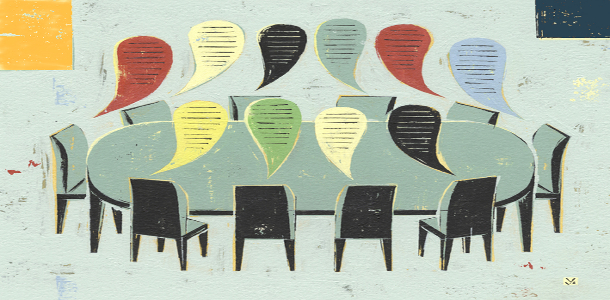Posted by laurajane on Dec 17, 2014 in Uncategorized | Comments Off on 9 sentences that need a hyphen





Posted by laurajane on Dec 10, 2014 in Uncategorized | Comments Off on 8 great gifts for word lovers
8 great gifts for word lovers
It’s not too late to find that perfect holiday gift for the word nerd in your life, but what can you get the person who routinely quotes from “Eats Shoots and Leaves” and who argues with others whether they should use the serial comma? Here are eight ideas. 1. Literary action figures Even better than the “Star Wars” action figures we played with as kids, you can have Charles Dickens, William Shakespeare, Jane Austen, and Edgar Allen Poe sit down to tea. These action figures even come with accessories. 2. An iPad with the browser set to ...

Posted by laurajane on Dec 4, 2014 in Uncategorized | Comments Off on “Then” vs. “than”: knowing the difference
“Then” vs. “than”...
Like many other PR Daily readers, certain writing errors annoy me. For example, I can’t stand the misuse of “comprise” and “compose, or using a hyphen when a dash is called for. I hate seeing the word “irregardless.” Over the last several months, I’ve noticed a very basic, obvious error with greater frequency. What is wrong with this sentence? The emergency medicine director said taller people with broad shoulders do need larger protective garments then the universally sized ones available. How about this one? It usually takes less...

15 words to describe people
“It is absurd to divide people into good and bad. People are either charming or tedious.” This view professed by Oscar Wilde seems rather limiting, especially to the word connoisseurs who read PR Daily. People can be rather complex and so are the words to describe them. Below are 15 words to describe people. 1. Ascetic — a person who leads an austere, simple life, especially one who denies himself or herself material satisfaction or physical pleasure. Example: “I had always thought of Eve as an ascetic until I saw her at the monster truck show.” 2. Bon...

32 alternatives to “a lot”
“A lot” is a piece of land, or so said many of my high school English teachers whenever anyone used “a lot” to describe an amount. Unfortunately, in much of the work we’re asked to edit, “a lot” is used…a lot. Here are a few examples of how the term is commonly used: “There will be a lot of drinking after work tonight.” “Our style guide does not appear to be used by a lot of people.” “I try not to ask for a lot of help from the IT Department.” “There’s not a lot we can do about the CEO’s use of run-on...

Posted by laurajane on Nov 12, 2014 in Uncategorized | Comments Off on 11 of your writing eccentricities
11 of your writing eccentricities
It turns out – PR Daily readers – that your writing eccentricities are considerably more interesting than mine. A few posts ago, I wrote about my one of my writing eccentricities . . . my abhorrence of periods in phone numbers. I also asked PR Daily readers to confess and share their idiosyncrasies, eccentricities, and funny writing habits. Here’s what you said. “I… am… obsessed… with… ellipses! (And you are right, not only is it annoying when folks use periods in phone numbers, it often fouls up smart phones on call-backs. Memo to your...

Posted by laurajane on Nov 5, 2014 in Uncategorized | Comments Off on 17 words that aren’t spelled like they sound
17 words that aren’t spelled like ...
Sometimes the rules of English spelling make no sense. The reason for the confusion is the diverse origins of English words. German, Latin, French, and Greek are all common sources, and each language follows a different set of rules for spelling. Even the best spellers—including those who avidly read PR Daily—can be tripped up by the irregularities of English spelling. Perhaps it’s because there are so many English words that aren’t spelled the way they sound. Below are a few of the most befuddling ones. (Click on the word for an audible...

Posted by laurajane on Oct 29, 2014 in Uncategorized | Comments Off on What are your writing eccentricities?












